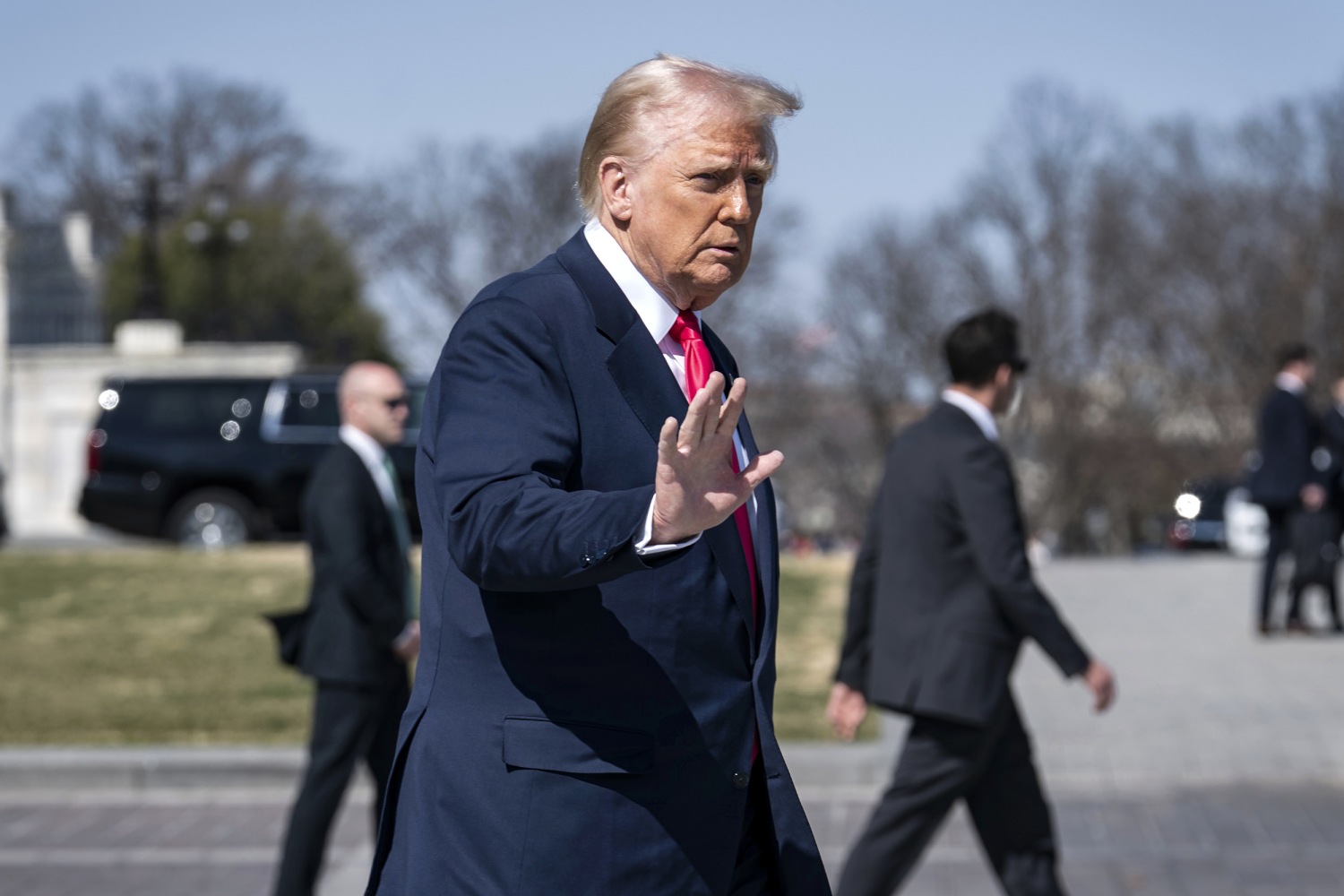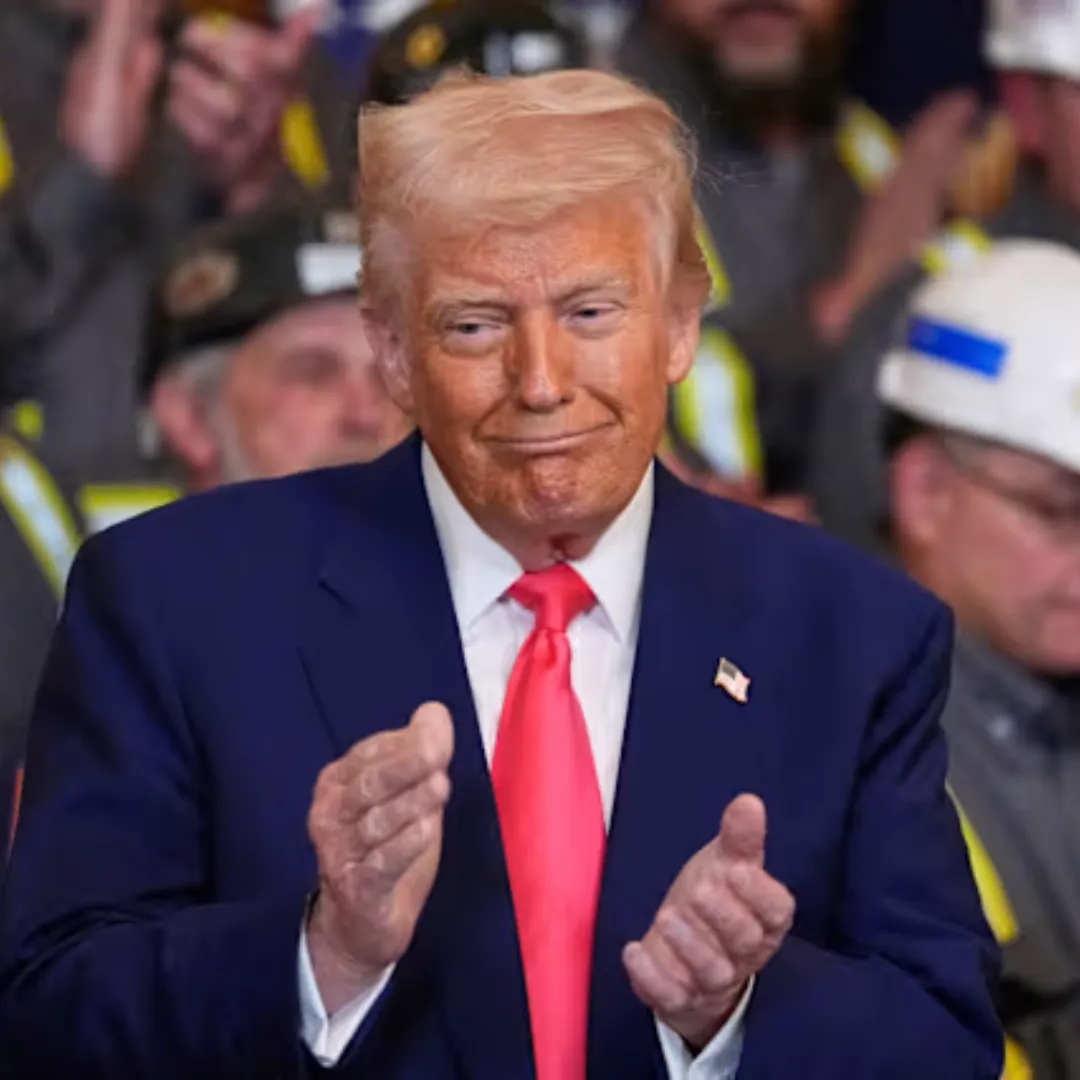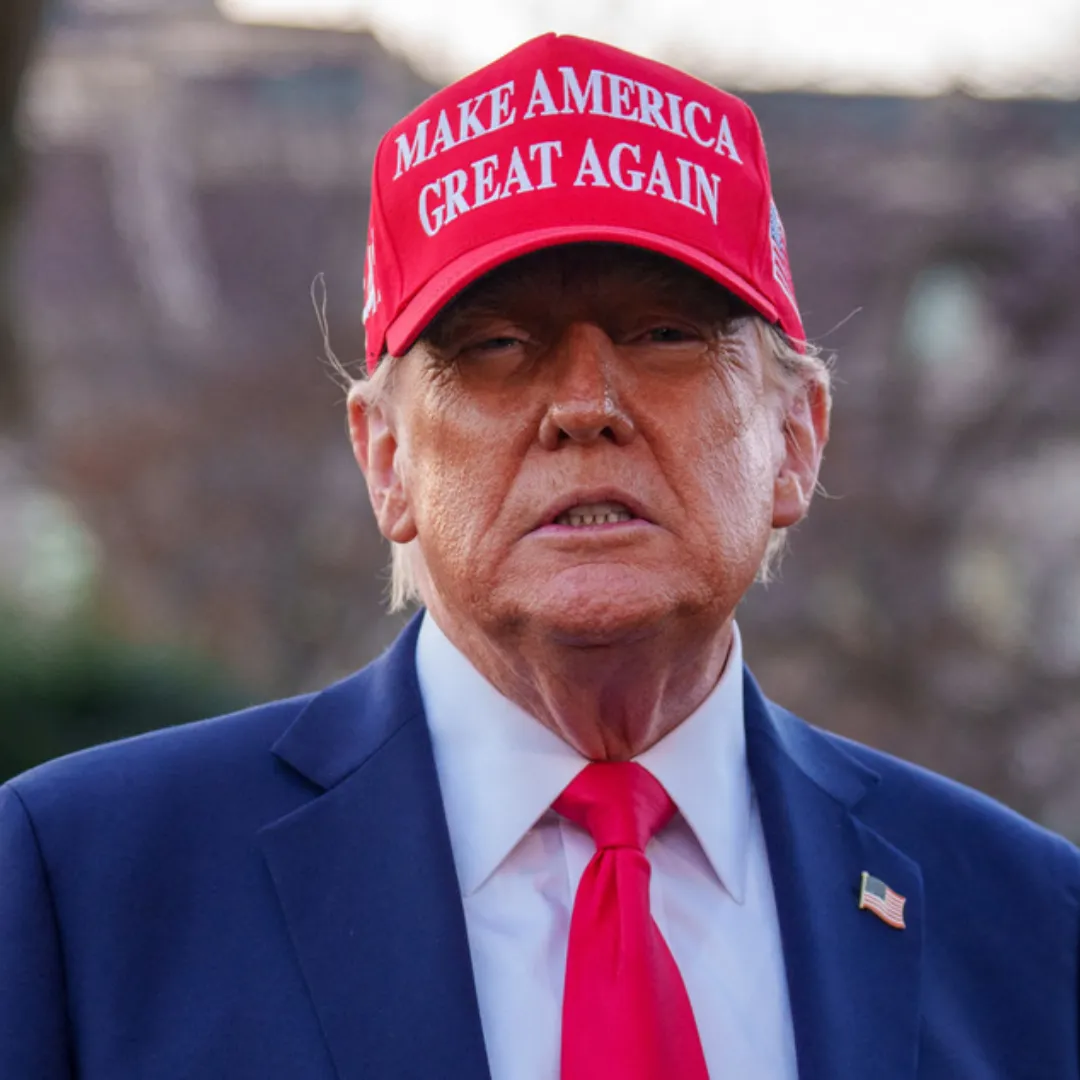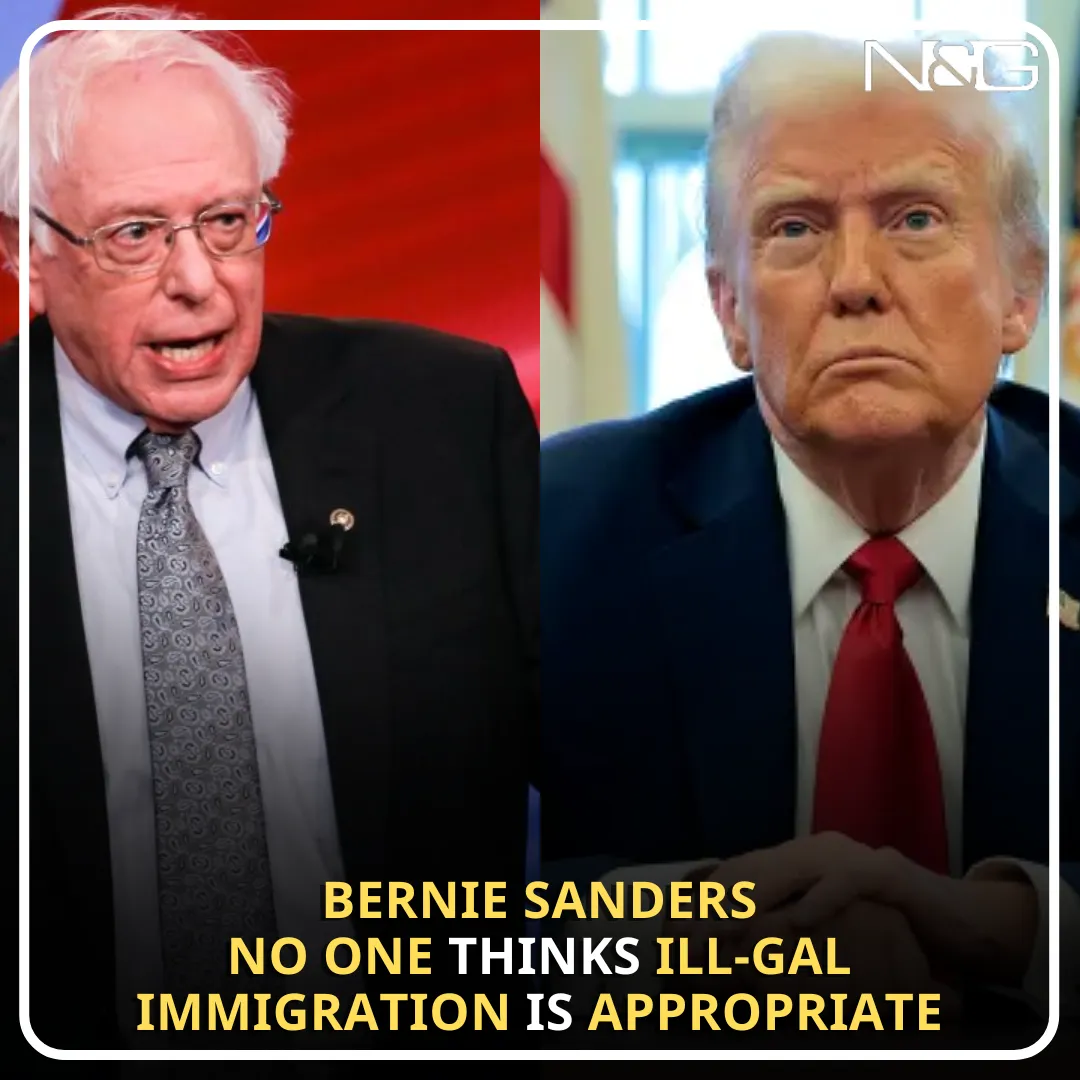
In a rare moment of alignment, Senator Bernie Sanders (I-Vt.) recently expressed agreement with President Donald Trump on one critical issue: cracking down on illegal immigration and the flow of fentanyl into the United States. Sanders, a long-time progressive advocate, joined ABC News’s “This Week” to discuss his views on the state of the nation and the Trump administration’s policies, particularly in the realm of border security.
When asked by host Jonathan Karl if there was anything that Trump had done right, Sanders surprised some by acknowledging areas of agreement. “I think cracking down on fentanyl, making sure our borders are stronger,” Sanders said.
“Look, nobody thinks illegal immigration is appropriate, and I happen to think we need comprehensive immigration reform, but I don’t think it’s appropriate for people to be coming across the border illegally.”
In making these remarks, Sanders appeared to acknowledge a shared concern between him and Trump’s administration: the need for stronger border security and the protection of American citizens from illegal drugs like fentanyl. This agreement came amidst a broader political climate in which border security has become one of the most contentious issues, especially with the increased attention on fentanyl trafficking and its impact on public health.
However, while Sanders shared common ground with Trump on certain aspects of immigration policy, he made it clear that he strongly disagreed with the president’s approach to immigration overall. Specifically, Sanders vehemently rejected Trump’s mass deportation plan, which aimed to remove an estimated 20 million undocumented immigrants from the United States.
Sanders warned that such a drastic policy would be disastrous for the country.
“He wants to deport 20 million people who are in this country who are undocumented,” Sanders stated. “Well, you do that, you destroy the entire country.” Sanders’s comments highlighted his belief that the impact of mass deportations would go far beyond the lives of the individuals involved, reaching deep into the fabric of the American economy and society.
According to Sanders, many of the undocumented immigrants living in the U.S. are vital to the functioning of key industries, and their removal would have severe consequences.

“Because I got news for you, Trump’s billionaire friends are not going to pick the crops in California that feed us. They’re not going to work in meatpacking houses,” Sanders continued. “That’s what undocumented people are doing.”
In this statement, Sanders underscored the critical role that undocumented immigrants play in sectors of the economy such as agriculture and food processing—industries that would face a severe labor shortage if millions of undocumented workers were deported.
This particular point of contention between Sanders and Trump reflects a broader divide in American politics over immigration. While Trump and many Republicans view strict immigration enforcement as essential to national security and economic stability, Sanders and many progressives argue that comprehensive immigration reform is necessary to address the realities of labor shortages, human rights, and the contributions of immigrants to the economy.
While Sanders’s comments may have surprised some, they also served as a reminder of the complexity of immigration policy in the United States. Sanders has long been an advocate for comprehensive immigration reform that balances the need for border security with the recognition that many undocumented immigrants are integral to American society.
His recent remarks about fentanyl and border security suggest that even in the most polarized political environment, there may be opportunities for bipartisan cooperation on certain issues.
The discussion about immigration and fentanyl comes at a time when both issues have taken on added significance in American political discourse. Fentanyl, a powerful synthetic opioid, has contributed to a nationwide public health crisis, leading to a surge in overdose deaths.
In this context, Sanders’s support for efforts to curb the flow of fentanyl is in line with his broader concerns about the opioid epidemic and its devastating effects on communities across the country.

Yet, while Sanders agreed with Trump on the need to address the fentanyl crisis, he continued to voice his opposition to the president’s broader immigration policies. Sanders’s message to the public remains consistent: he believes in a fair and humane approach to immigration, one that recognizes the contributions of immigrants to American society and economy while also ensuring that the country’s borders are secure.
Beyond his comments on immigration, Sanders has become one of the most outspoken critics of President Trump and the growing influence of billionaires in American politics. Over the past several years, Sanders has consistently challenged the notion that America’s wealthiest individuals should hold the same level of political power as elected officials. He has spoken out against the rise of oligarchy in the U.S., a theme he continues to focus on in his public appearances.
Sanders’s growing prominence as a leader in the left-wing resistance against Trump has included a nationwide speaking tour, dubbed “Fighting Oligarchy,” which he launched earlier this year. The tour aims to draw attention to the concentration of wealth and power in the hands of a few, and to rally support for progressive policies that challenge the political and economic status quo.
Sanders’s tour has drawn large crowds, and his message has resonated with a growing number of Americans who feel left behind by the economic system.
The tour has also garnered the support of other high-profile progressives, including Representative Alexandria Ocasio-Cortez (D-N.Y.). Over the weekend, Sanders and Ocasio-Cortez held a rally in Denver that drew more than 30,000 people. The event was a testament to the growing influence of Sanders and his allies in the progressive movement, and a reflection of the broader political shift underway in the U.S.

As Sanders continues his speaking tour, his messages about the dangers of unchecked corporate power, the need for comprehensive immigration reform, and the importance of addressing the fentanyl crisis will likely remain central to his political platform. While his comments about Trump’s immigration policies may have raised eyebrows, they also underscore Sanders’s belief that effective governance requires finding common ground on issues that affect all Americans—regardless of political party affiliation.
It is unclear what the future holds for Sanders, but one thing is certain: his voice will continue to be a driving force in American politics. As the political landscape continues to evolve, Sanders’s blend of progressive ideals and pragmatic compromise may help shape the future of the Democratic Party, and the nation as a whole.



